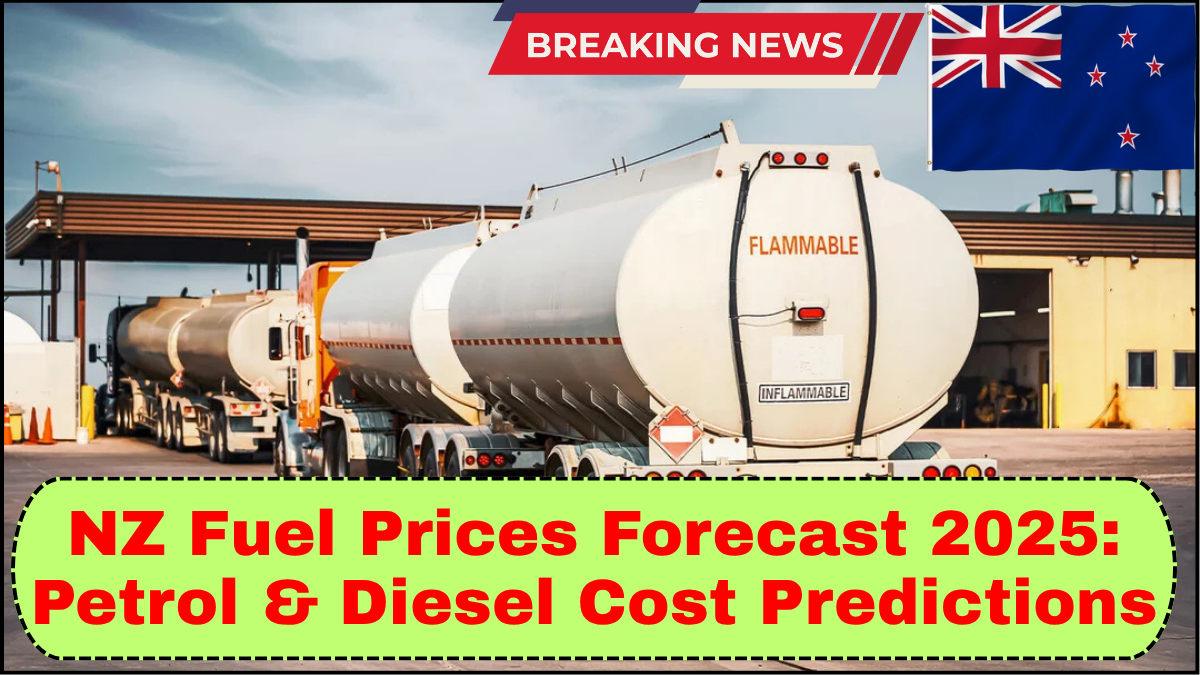As New Zealand edges closer to 2025, fuel consumers are watching closely for shifts in petrol and diesel costs. The NZ Fuel Prices Forecast 2025 has become a point of interest not only for everyday drivers but also for industries relying heavily on transportation. Multiple economic and global factors are expected to shape fuel pricing over the next year, and understanding these drivers can help consumers prepare for what’s ahead.

Key Factors Influencing NZ Fuel Prices in 2025
1. Global Oil Market Dynamics
The international price of crude oil remains the most significant variable in determining local fuel costs. Geopolitical tensions in oil-producing regions, OPEC+ output decisions, and supply disruptions all directly affect the wholesale price of crude. For 2025, analysts anticipate modest fluctuations with Brent crude potentially hovering between USD $80–$90 per barrel, unless unexpected global events cause volatility.
2. New Zealand’s Emissions Trading Scheme (ETS)
As part of its commitment to lowering carbon emissions, New Zealand includes fuel within its Emissions Trading Scheme. This means every litre of petrol or diesel sold carries a cost for its carbon footprint. For 2025, the ETS price per tonne of CO2 is expected to increase, potentially pushing fuel prices up by 5 to 10 cents per litre, depending on final policy adjustments.
3. Exchange Rate Volatility
The New Zealand dollar’s performance against the US dollar directly impacts how much Kiwis pay at the pump. Since crude oil is traded in USD, a weaker NZD means higher import costs. Forecasts for 2025 suggest a stable to slightly weakened NZD, which may marginally inflate petrol and diesel prices.
4. Domestic Supply Chain Costs
From shipping and refining to distribution and retail, every stage in the fuel supply chain contributes to the final price. Rising labour and logistics costs, combined with inflation, are likely to nudge prices higher. Infrastructure improvements and port congestion could also play a role.
Petrol Price Predictions for 2025
Petrol prices in New Zealand are projected to rise moderately in 2025. Based on current trends and expert projections:
- 91 Octane Petrol: Expected to average between $2.75 and $2.95 per litre.
- 95/98 Premium Petrol: Could range from $3.05 to $3.25 per litre.
Factors such as increased demand post-COVID recovery, tighter environmental regulations, and higher carbon costs contribute to these estimates. Motorists should consider more fuel-efficient driving habits or hybrid vehicle options to mitigate costs.
Diesel Cost Predictions for 2025
Diesel, often used in freight, agriculture, and public transport, faces its own set of pressures:
- Diesel Prices: Forecasted to land between $2.60 and $2.80 per litre.
Demand for diesel remains strong across commercial sectors, and with limited alternatives currently available at scale, upward pressure on prices seems likely. However, government subsidies or tax relief for essential services could cushion the blow for specific industries.
Government and Market Responses
To manage public concerns around rising fuel costs, the New Zealand government may consider extending or introducing subsidies, revising fuel taxes, or accelerating EV infrastructure investment. Retailers may also respond by enhancing loyalty programs or offering bulk discounts.
Meanwhile, the push for electric vehicles is accelerating. By 2025, EV uptake is expected to reduce pressure on petrol demand, potentially moderating price hikes in urban areas.
How Consumers Can Prepare
- Track fuel prices regularly using apps like Gaspy to find the best local deals.
- Adopt fuel-efficient driving techniques to lower consumption.
- Consider switching to hybrid or electric vehicles, especially if long-term fuel costs are a concern.
- Use public transportation or carpooling where practical.
FAQs on NZ Fuel Prices Forecast 2025
Q1: Will fuel prices in NZ continue to rise in 2025?
Yes, current indicators suggest moderate increases in both petrol and diesel prices due to global oil trends, emissions charges, and domestic cost pressures.
Q2: What’s the main reason for the expected rise in fuel prices?
Key contributors include global crude oil prices, the emissions trading scheme, and inflation in supply chain logistics.
Q3: Are there any ways to offset the rising fuel costs?
Yes. Consumers can reduce usage, switch to more fuel-efficient vehicles, use public transport, and leverage fuel discount programs.
Q4: How does the NZD/USD exchange rate impact fuel prices?
A weaker New Zealand dollar makes imported crude oil more expensive, leading to higher retail fuel prices.
Q5: Could EV adoption affect fuel prices in the future?
As more New Zealanders switch to electric vehicles, petrol demand may dip slightly, helping to stabilize or slow price increases over time.
click here to learn more